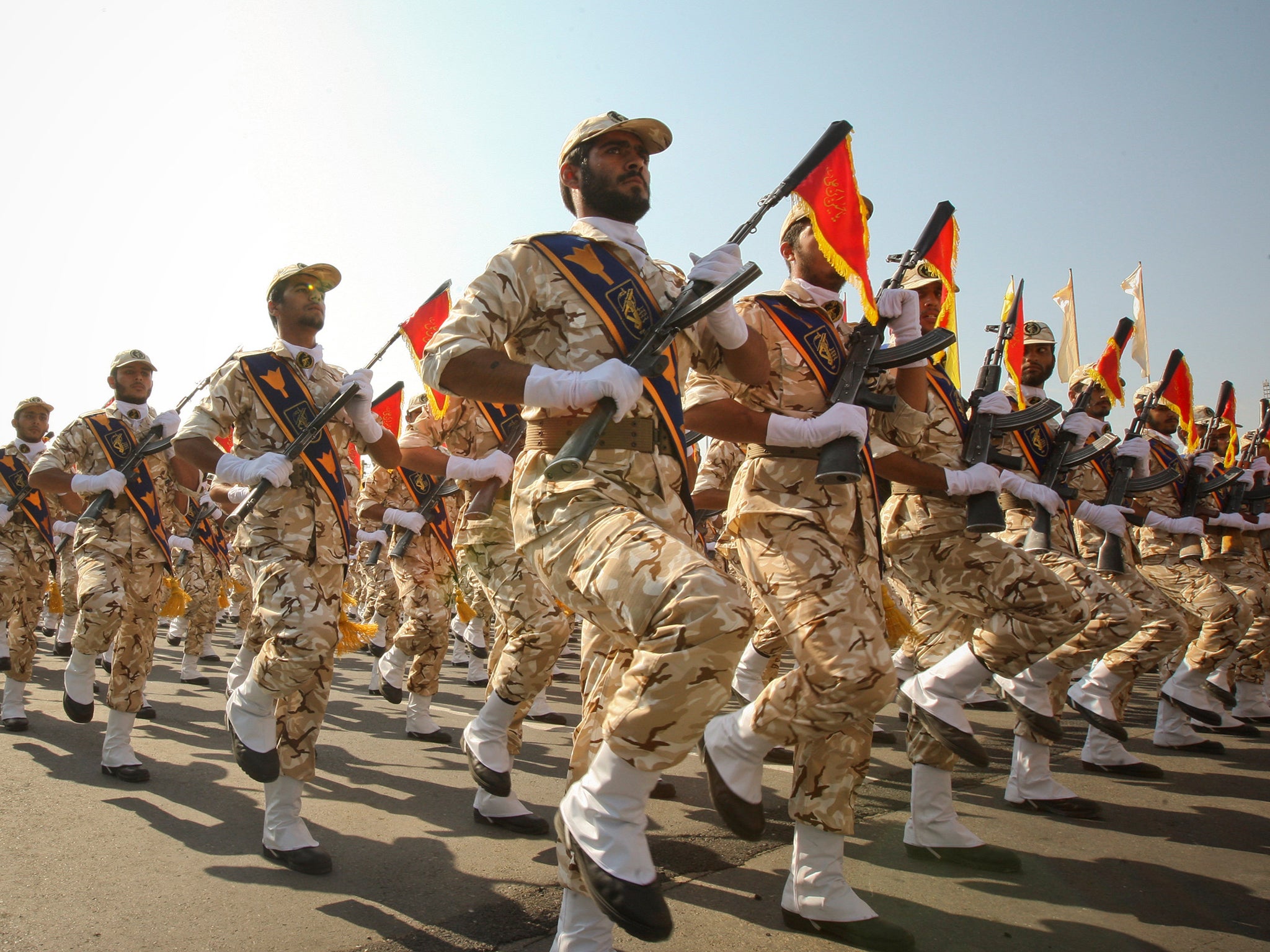Your support helps us to tell the story
From reproductive rights to climate change to Big Tech, The Independent is on the ground when the story is developing. Whether it's investigating the financials of Elon Musk's pro-Trump PAC or producing our latest documentary, 'The A Word', which shines a light on the American women fighting for reproductive rights, we know how important it is to parse out the facts from the messaging.
At such a critical moment in US history, we need reporters on the ground. Your donation allows us to keep sending journalists to speak to both sides of the story.
The Independent is trusted by Americans across the entire political spectrum. And unlike many other quality news outlets, we choose not to lock Americans out of our reporting and analysis with paywalls. We believe quality journalism should be available to everyone, paid for by those who can afford it.
Your support makes all the difference.The European Council has extended sanctions against Iran, one of Syrian leader Bashar al-Assad’s key backers, in response to serious human rights violations.
The measures hitting exports and targeting key leaders were signed off on the same day EU member states helped block a fast US/UK drive for new sanctions on the Assad regime and Russia, which are allied to Iran in the Syrian civil war.
It also comes as US Secretary of State Rex Tillerson arrived in Moscow for talks with Russian President Vladimir Putin, having secured backing for the US military action in Syria responding to a chemical weapons attack blamed on Assad.
The extended EU measures hitting Iran include a travel ban and asset-freeze against people involved in the country’s theocratic regime – including senior figures in the Iranian Revolutionary Guard, National Police Force and Basij religious paramilitary group.
EU documents state they target persons complicit in “torture, cruel, inhuman and degrading treatment, or the indiscriminate, excessive and increasing application of the death penalty, including public executions, stoning, hangings or executions of juvenile offenders.”
They also hit people “responsible for directing or implementing grave human rights violations in the repression of peaceful demonstrators, journalists, human rights defenders, students or other persons who speak up in defence of their legitimate rights, including freedom of expression.”
There is then a ban on exports to Iran of equipment which might be used for internal repression and of spying equipment for monitoring telecommunications.
The measures were first implemented in the wake of the Iranian government crackdown against protests in 2011, while Arab Spring demonstrations were breaking out across the region.
But they have been extended by the EU just as Boris Johnson demanded similar restrictions against Russian and Syrian figures in the wake of the Idlib chemical weapons attack, which were rebuffed by the EU representative, and those of France and Germany at the G7 in Italy.
The G7 did issue a joint-position that Assad cannot have a position in government following any future peace settlement in Syria, with Mr Tillerson heading to Moscow to put pressure on the Syrian leader’s main backer, Mr Putin, on Wednesday.
There was outrage across the world after dozens of civilians were killed in what is believed by the West to have been a chemical weapons attack by the Assad regime which killed scores in the rebel-held village of Khan Sheikhoun.
But Mr Putin has showed little inclination to respond to US diplomatic moves following the American missile attack on the base from which the chemical attack is believed to have originated, saying instead that there are planned "provocations" to blame Syria's government.
Mr Tillerson’s trip also comes as the UN Security Council is set to vote on Wednesday on a draft resolution drawn up by the US, Britain and France calling on the Syrian regime to co-operate with a probe into the chemical attack.

Join our commenting forum
Join thought-provoking conversations, follow other Independent readers and see their replies
0Comments